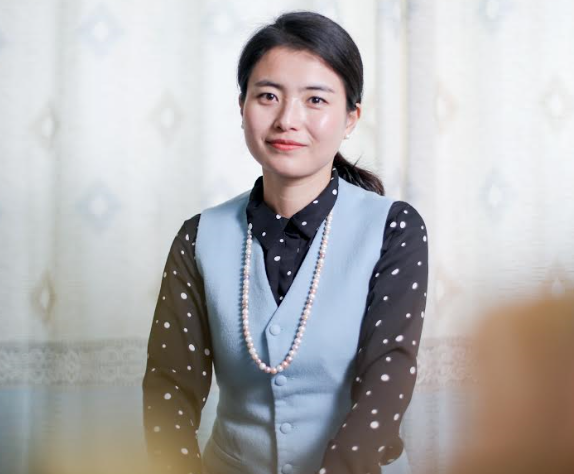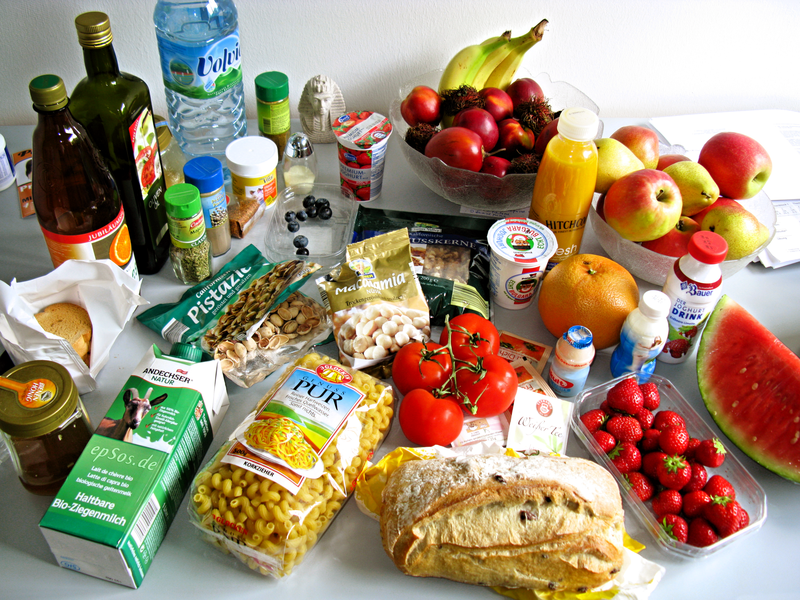
I interviewed Dong Zijun, a student of our school on a topic that is really important for her and for her home country, China as well: dietetics.
She has been interested in dietetics for about 6 years now thanks to the influence of one of her friends. She has a certificate in the field and used to volunteer at the Chinese Nutrition Society. The volunteers educate children, often in developing regions on how to eat healthy. Because of China’s rapid economic developement in the last couple decades people have access to unhealthy food they never had previously. The Chinese Nutrition Society published the first edition of the Chinese Dietary Guideline in 1989, and revised the guidelines every ten years, which played an important role in spreading the concept of healthy eating to the public and improved the nutrition status of the Chinese people. In 2013, the Society published the Chinese Dietary Reference Intake in order to provide a professional scientific reference in nutrients intake and control non-communicable diseases.
In China 12% of the population is overweight, which does not even seem like a lot to us, but the Chinese government sees it otherwise. Unhealthy citizens slow down the growth of the economy and cost a lot of money to the government and to the people. Health is a key for China. Sick workers cannot keep the economy growing.

Do you think Hungarians in general less healthy than Chinese people?
It depends on the area, she answered. Hungarian and Chinese people have very different eating habits. Chienese people want to have fresh vegetables with every meal. They see it as a big problem if they cannot have access to it. Hungarians, on the other hand, have a lot of meat and dairy products. In China we have no cheese at all, only yoghurt is known. A lot of Far Eastern people are lactose intolerant. Our absorption is weaker, thus the significant differences in our eating habits. – When the first Western fast food restaurant was established in my home region in Northern China, my uncle went to try hamburgers for the very first time. He had severe stomach ache for a couple days as a result. He never had hamburgers again.
What should we eat in a day?
According to the Chinese Dietary Guideline this is how we should plan our daily food intake. However the same might not be enough for a European boy, for example. Our differences are not only cultural but biological as well.
There are many Chinese restaurants in Budapest. Are they actually similar to traditional Chinese cuisine? Are they healthy?
Yes, I know them. A very few of these restaurants actually have food similar to what we have at home but the vast majority is pretty far from how Chinese people would traditionally cook. They are designed to appeal to Hungarian people. Their dishes have a lot of meat, too much oil and sugar which is not so common in traditional Chinese cuisine. People in the South do like a little bit sweeter dishes but in the North they prefer hot and spicy. It is interesting to note that Hungarian cuisine though, does have similar dishes to traditional Chinese ( and also Mongolian) ones such as the popular Gulyás leves/Goulash soup. It is really similar to something we would actually cook in China. Some meat, a lot of vegetables and spices.
Vegetarianism and veganism have become very popular recently. Is meat as unhealthy as a lot of people claim these days? Should we completely leave meat out of our diet?
No, absolutely not. It is good for us to eat more vegetables than meat, but we do need protein and essential vitamins, such as vitamin D from meat to stay strong and healthy. If we choose not to have any meat, we will have to rely on various nutritional supplements. It is a big industry. No wonder it is their interest to make such diets a trend.
When young people leave their homes to go to university or college they often face the problem of not knowing how to cook healthy for themselves. How do you see this problem?
Chinese universities are very different from Hungarian ones in this respect. They have huge restaurants where you can choose from various meals. They aren’t necessarily healthy but Chinese students never have to cook for themselves. As we all know it is not the case here, students usually have take-away food, eat in malls or cook for themselves. In China when young people become independent the first thing they cook is a dish made of eggs, tomato, rice and other seasonal vegetables. You can also add water and noodles if you like and make a soup.
Please name three things we should have more of and three things we should have less of.
3 good ones:
Rice and bread.
Girls often skip bread and even healthy garnishes like rice when they decide to go on a diet without knowing that they do more harm to their bodies than good. Wholegrains and cereals help to maintain a healthy digestive system and they are a rich source of vitamins, minerals and protein. The fibre they contain is an important nutrient that helps to prevent weight gain and heart disease.
Vegetables.
Vegetables provide nutrients vital for your body. They reduce the risk of many diseases including high blood pressure.
Fruits.
Fruits are also rich in vitamins and minerals. They also make you feel healthy and energetic. Candies and chocolate can be replaced with fruits. They do contain sugar – fruit sugar or fructose- but it’s not harmful in reasonable amounts.
3 bad ones:
Soft drinks.
Drinking such beverages on a regular basis is very unhealthy. You should never drink soft drinks instead of water. They can cause obesity, diabetes, heart disease and tooth decay. Small amounts may not cause any serious harm but always have water and brush your teeth after you drink some.
Sweets.
Too much is obviously unhealthy for pretty much the same reasons soft drinks are. Funny fact that in China we barely eat chocolate.
Alcohol and smoking.
You should completely quit smoking and only drink moderately to maintain your health. They can both lead to heart disease, birth defects, cancer etc.
We all desire to be healthy inside and out. What should we eat to not only feel, but also appear healthy?
For clear skin you should take in a lot of vitamin C. Have fruits as a snack, try to have good sleep. In China university dorms turn off electricity from 10pm to 6am so that no one can stay up to be on their phones or study at night. Doing sports can also help. Europeans are in big advantage when it comes to doing outdoors activities. The incredibly severe air pollution in big Chinese cities makes it impossible to go outside to do sports. People want to stay in their apartments where they have air cleaners.
If you want to have strong and healthy hair you should take in more collagen and protein which you can find in meat and milk.
What are your plans for the future with dietetics?
Although it is only a hobby for me at the moment l think it is an incredibly useful life skill. I would love to work in this field again and join the non-governmental organisation of the United Nations Food and Agriculture Program.
 Bergendy Anna Kleopátra
Bergendy Anna Kleopátra



